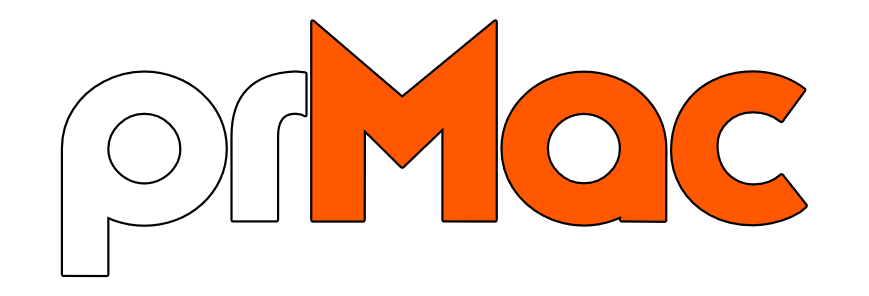In today’s digital landscape, businesses and individuals alike depend on residential proxies to safeguard their online privacy, circumvent geo-restrictions, and enable large-scale web scraping. These tools have become indispensable for data-driven operations, with applications ranging from cybersecurity and ad verification to e-commerce automation and competitive intelligence. The global proxy server market is poised for significant expansion, projected to surge from $1.2 billion in 2023 to $2.5 billion by 2028, at a CAGR of 12.5%. This remarkable growth underscores the escalating demand for top proxy servers and high-quality proxy solutions, including the best residential proxy providers. In this comprehensive guide, we will delve into the leading residential proxy providers of 2024, examine prevailing industry trends, and explore the key challenges that are shaping the dynamic proxy landscape.
What Are Residential Proxies and Why Are They Important?
A residential proxy routes your internet traffic through real residential IP addresses assigned by Internet Service Providers (ISPs). Unlike datacenter proxies, which rely on artificial server-based IPs, residential proxies offer higher anonymity, making them ideal for web scraping, ad verification, sneaker botting, and bypassing geo-restrictions.
With the data scraping industry valued at $5 billion in 2024, residential proxy networks have become vital for businesses conducting market research, price tracking, and competitive intelligence.
For those looking for a detailed comparison of the top residential proxies, [this guide on the best proxy providers](https://www.bestproxyproviders.com) offers expert insights and reviews.
Top Residential Proxy Providers in 2024
Here’s a breakdown of the industry-leading residential proxy providers and their strengths.
Bright Data – Best for Large-Scale Data Collection
Pros: Over 72M IPs, AI-powered proxy management, high success rates.
Cons: Expensive for small-scale users.
Best for: Businesses needing scalable, high-speed proxy networks.
Use Case: A Fortune 500 retailer used Bright Data for price monitoring, increasing sales by 15% (Source: Business Insider).
Oxylabs – AI-Optimized Enterprise Proxy Solutions
Pros: AI-driven IP rotation, large pool of ethically sourced IPs.
Cons: Premium pricing for small businesses.
Best for: Enterprises requiring AI-enhanced web scraping solutions.
Smartproxy – Cost-Effective & Beginner-Friendly
Pros: Affordable pricing, easy setup, robust proxy performance.
Cons: Smaller IP pool compared to Bright Data and Oxylabs.
Best for: Budget-conscious users needing reliable proxies.
SOAX – Granular Targeting & Rotating Proxies
Pros: Advanced geo-targeting, rotating/static proxy options.
Cons: Relatively slower customer support.
Best for: Precise location-based market research.
NetNut – Fast, ISP-Assigned Static Proxies
Pros: Direct ISP connections, reliable speeds.
Cons: Limited rotating IP pool.
Best for: Businesses needing long-term static IPs to reduce CAPTCHA challenges.
IPRoyal – Affordable & Ethically Sourced
Pros: Budget-friendly, privacy-compliant proxies.
Cons: Smaller network size.
Best for: Freelancers and startups focused on ethical proxy use.
PacketStream – Most Affordable Peer-to-Peer Proxy
Pros: Low-cost pay-per-use model.
Cons: Slower connection speeds.
Best for: Occasional proxy users who need cost-effective solutions.
Key Market Trends Influencing Proxy Usage in 2024
AI-Powered Proxy Management
Providers like Bright Data and Oxylabs are integrating AI-driven management to improve proxy success rates, reduce detection risks, and optimize connection stability.
Ethical Proxy Sourcing & Compliance
With stricter data privacy laws (GDPR, CCPA), proxy vendors prioritize ethical sourcing. Companies like NetNut and SOAX focus on compliance to ensure legal proxy usage.
Increased Demand for Static Residential Proxies
Unlike rotating proxies, static residential proxies (ISP-assigned) offer better reliability, speed, and lower risk of being flagged.
Cloud-Based Proxy Infrastructure
Organizations are moving to cloud proxy solutions for scalability and maintenance-free operations, enabling seamless integration.
Adoption of IPv6 Proxies
Due to IPv4 scarcity, IPv6 proxies are increasingly gaining traction, providing greater anonymity and future-proof compatibility.
Real-World Case Studies & Industry Impact
Legal Battle: Bright Data vs. Meta (2023)
A widely debated lawsuit between Bright Data and Meta highlighted the ethical and legal challenges of data scraping. This case led many proxy providers to prioritize transparency and compliance (Source: TechCrunch).
Cybersecurity in Banking (2024)
Banks and financial institutions utilized residential proxies for fraud detection, resulting in a 30% reduction in fraudulent transactions (Source: Financial Times Analysis).
Sneaker Botting Boom & Proxies
With the increasing demand for limited-edition sneakers, sneaker botting saw a 35% YoY growth rate in proxy usage (Source: Proxyway 2024 Report).
Key Challenges Facing the Residential Proxy Industry
Cost vs. Scalability
High-quality residential proxies are expensive, pushing businesses to evaluate ROI before investing in large-scale operations.
Detection & Anti-Bot Measures
Platforms like Amazon and Google continually strengthen anti-bot detection, emphasizing the need for AI-driven proxy rotation techniques.
Compliance with Data Privacy Laws
With GDPR and CCPA regulations tightening, proxy providers must ensure legal and ethical sourcing of IPs.
Performance & Speed Limitations
As residential proxies use real user devices, they often face slightly higher latencies compared to datacenter proxies.
The Future of Residential Proxies
As businesses continue to rely on web scraping, cybersecurity, and automation, residential proxy providers are becoming indispensable. Forward-thinking services leveraging AI-powered routing, ethically sourced IPs, and advanced static proxies are expected to dominate the market.
Choosing the right provider – be it Bright Data for enterprise-level data extraction or NetNut for long-term static IPs – can be a key determinant in how efficiently businesses perform automated data operations.
By 2026, the integration of machine learning and AI in proxy management will further enhance anonymity, security, and efficiency, solidifying proxies’ role in a data-driven, privacy-conscious digital economy.

